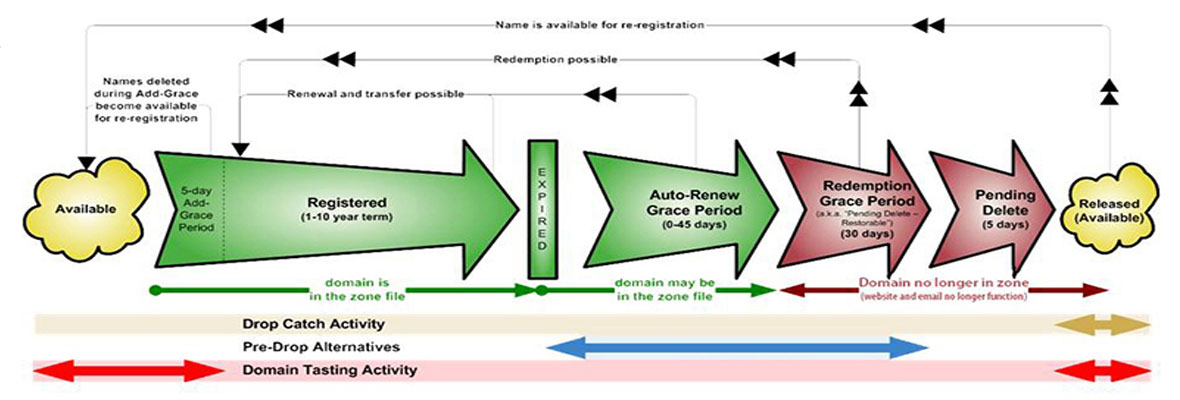Understanding Domain Name Expiry and Renewal Grace Period: What Every Website Owner Should Know
In the bustling world of website management, amidst the myriad of tasks and responsibilities, one crucial aspect often overlooked is the management of domain names. Your domain name is not just a web address; it’s your digital identity, the gateway through which users access your online presence. However, what happens when this vital asset expires? Understanding the domain name expiry and renewal grace period is essential knowledge for every website owner.
Importance of Domain Name Renewal
Before delving into the intricacies of expiry and grace periods, let’s emphasize the importance of timely domain name renewal. Just like any other subscription or service, domain names require periodic renewal to maintain ownership rights. Failure to renew your domain name in time can lead to severe consequences, including loss of control over your website, disruption of services, and even loss of credibility among your audience.
Domain Name Expiry: What It Means
When a domain name reaches its expiration date, it enters a critical phase. At this point, the domain ceases to resolve to your website, meaning visitors won’t be able to access your site using the expired domain name. However, this doesn’t mean you’ve lost ownership immediately. Most domain registrars offer a grace period during which you can still renew your domain name without additional fees or penalties.
Understanding the Renewal Grace Period
The renewal grace period is a lifeline extended by domain registrars to give website owners a chance to rectify the situation after their domain has expired. Typically, this period lasts for about 30 days, during which the domain remains in a “pending delete” status. This means your website and associated services may be inaccessible, but you still have the opportunity to renew the domain without losing ownership.
Redemption Period: Last Resort for Domain Recovery
If the domain remains unrenewed even after the grace period, it enters the redemption period. This phase can last for another 30 days, during which the domain is held in reserve by the registrar. However, reclaiming the domain during this period becomes significantly more complicated and expensive, often involving additional redemption fees.
Expired Domain Auctions and Drop Catching
Beyond the redemption period, the domain enters the final stage: release to the public. At this point, anyone can register the domain on a first-come, first-served basis. Some expired domains may attract interest due to their history, backlinks, or search engine rankings. Consequently, there’s a competitive market for expired domains, with specialized services and auctions dedicated to acquiring valuable expired domains through a process known as drop catching.

